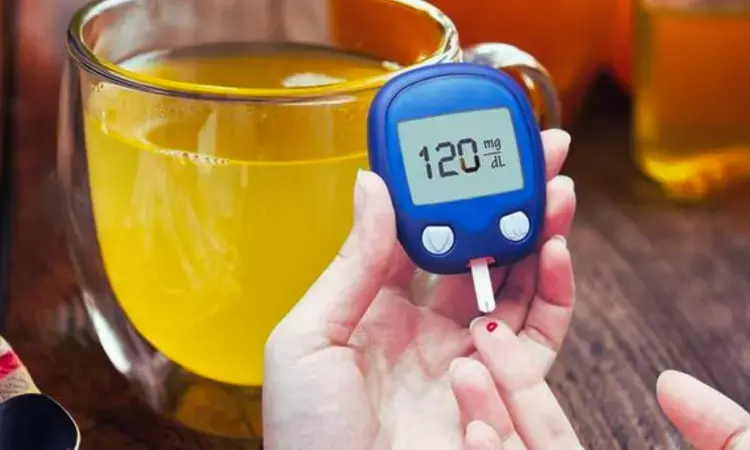- Home
- Medical news & Guidelines
- Anesthesiology
- Cardiology and CTVS
- Critical Care
- Dentistry
- Dermatology
- Diabetes and Endocrinology
- ENT
- Gastroenterology
- Medicine
- Nephrology
- Neurology
- Obstretics-Gynaecology
- Oncology
- Ophthalmology
- Orthopaedics
- Pediatrics-Neonatology
- Psychiatry
- Pulmonology
- Radiology
- Surgery
- Urology
- Laboratory Medicine
- Diet
- Nursing
- Paramedical
- Physiotherapy
- Health news
- Fact Check
- Bone Health Fact Check
- Brain Health Fact Check
- Cancer Related Fact Check
- Child Care Fact Check
- Dental and oral health fact check
- Diabetes and metabolic health fact check
- Diet and Nutrition Fact Check
- Eye and ENT Care Fact Check
- Fitness fact check
- Gut health fact check
- Heart health fact check
- Kidney health fact check
- Medical education fact check
- Men's health fact check
- Respiratory fact check
- Skin and hair care fact check
- Vaccine and Immunization fact check
- Women's health fact check
- AYUSH
- State News
- Andaman and Nicobar Islands
- Andhra Pradesh
- Arunachal Pradesh
- Assam
- Bihar
- Chandigarh
- Chattisgarh
- Dadra and Nagar Haveli
- Daman and Diu
- Delhi
- Goa
- Gujarat
- Haryana
- Himachal Pradesh
- Jammu & Kashmir
- Jharkhand
- Karnataka
- Kerala
- Ladakh
- Lakshadweep
- Madhya Pradesh
- Maharashtra
- Manipur
- Meghalaya
- Mizoram
- Nagaland
- Odisha
- Puducherry
- Punjab
- Rajasthan
- Sikkim
- Tamil Nadu
- Telangana
- Tripura
- Uttar Pradesh
- Uttrakhand
- West Bengal
- Medical Education
- Industry
Type 2 diabetes: Apple cider vinegar most effective for reducing blood sugar of all herbal remedies

Jharkhand: A recent systematic review found apple cider vinegar (ACV) and fenugreek seeds to be the most effective for reducing fasting blood sugar and A1c levels compared with four other popular herbal remedies for type 2 diabetes (cinnamon, curcumin, saffron, and ginger).
The review, published in Diabetes & Metabolic Syndrome: Clinical Research & Reviews, included 44 RCTs (randomized clinical trials) comprising more than 3000 participants using six herbal remedies: saffron, ginger, fenugreek seeds, curcumin, cinnamon, and apple cider vinegar.
The authors found apple cider vinegar to be the most effective for reducing fasting blood glucose levels.
Fenugreek seeds, ACV, curcumin (turmeric), and cinnamon resulted in statistically significant reductions in fasting blood glucose compared with the control groups in the clinical trials.
The authors found the herbal remedies made no difference to insulin level or HOMA-IR (homeostatic model assessment for insulin resistance).
Several herbal remedies used by patients with type 2 diabetes (T2D) have considerably increased insulin sensitivity. Such remedies help maintain a healthy glycemic status with no side effects. Clinical trial data and computerized methods indicate herbal medications to be one of the best remedies for type 2 diabetes.
Many herbal remedies have never been directly compared to establish the most effective methods. Therefore, Subodh Kumar, All India Institute of Medical Sciences (AIIMS), Deoghar, Jharkhand, India, and colleagues aimed to compare and rank the effects of herbal formulation by combining direct and indirect evidence on T2D management.
For this purpose, they retrieved relevant studies on the effectiveness of herbal formulations for glycemic status for patients with type 2 diabetes, from five electronic databases. The review included only randomized controlled trials that were published in English and looked at the effect of herbal formulations on the glycemic levels of adults (> 18 years). A systematic review and network meta-analysis design with the random-effects model was used.
The authors reported the following findings:
- The final analysis included a total of 44 trials including 3130 participants on six herbs were included in the final analysis.
- Apple cider vinegar (ACV) (standardized mean difference (SMD) = −28.99), cinnamon (−9.73), curcumin (−13.15), and fenugreek (−19.64) significantly reduced fasting blood glucose (FBG) compared with placebo.
- Only ACV (SMD = −2.10) and fenugreek seeds (0.84) were significantly effective in reducing HbA1C.
- ACV was the most effective herb to reduce FBG compared with other herbs.
"Several herbs could be considered as a valuable adjuvant therapy regarding glycemic control of type 2 diabetes patients," the researchers wrote. "Health professionals should be encouraged to incorporate these herbs for diabetes management as part of their standard care."
Reference:
Kumar, S., Sharma, S. K., Mudgal, S. K., Gaur, R., Agarwal, R., Singh, H., & Kalra, S. (2023). Comparative effectiveness of six herbs in the management of glycemic status of type 2 diabetes mellitus patients: A systematic review and network meta-analysis of randomized controlled trials. Diabetes & Metabolic Syndrome: Clinical Research & Reviews, 17(8), 102826. https://doi.org/10.1016/j.dsx.2023.102826
Dr Kamal Kant Kohli-MBBS, DTCD- a chest specialist with more than 30 years of practice and a flair for writing clinical articles, Dr Kamal Kant Kohli joined Medical Dialogues as a Chief Editor of Medical News. Besides writing articles, as an editor, he proofreads and verifies all the medical content published on Medical Dialogues including those coming from journals, studies,medical conferences,guidelines etc. Email: drkohli@medicaldialogues.in. Contact no. 011-43720751


